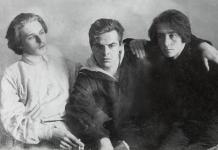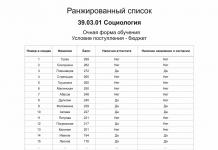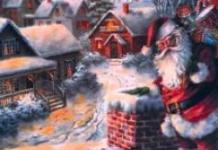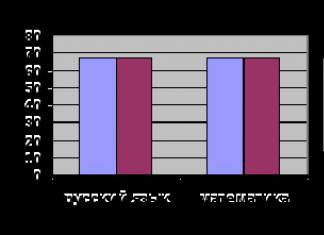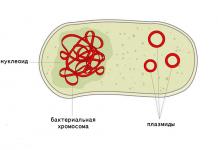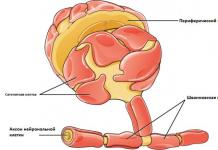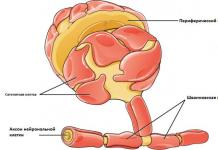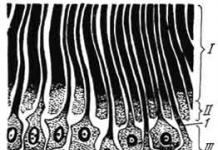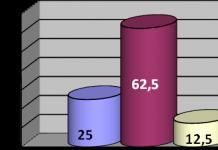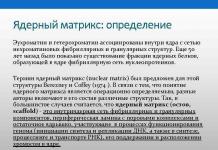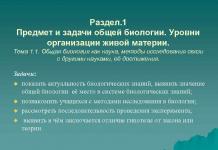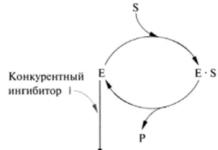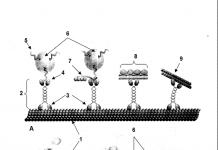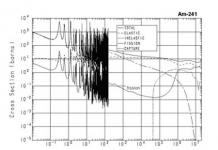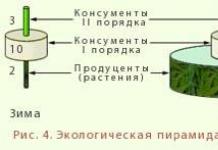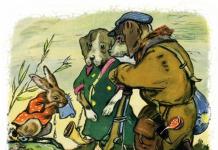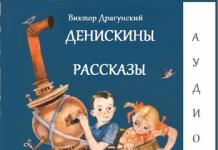“During his lifetime, Vysotsky was truly legendary and essential, like air, necessary for the crowds of people who flocked to listen to him ... Vysotsky always sang throughout the country: he knew that his every word, every intonation was caught on the fly and instantly replicated by tape ribbons. At the time of the performance, Vysotsky sent the song to huge world. This simple circumstance radically changed both the song itself and the nature of the singing. The song gained the power of the alarm and the crushingness of the explosion. Okudzhava excites to the core. Vysotsky shakes the soul… Both of them have accompanied the spiritual life of our society for decades and helped us to realize ourselves,” K. Rudnitsky noted.
Vysotsky wrote his first song "Tattoo" in 1961. In the first half of the 60s, he began to perform his songs, accompanying himself on the guitar, in friendly companies, a little later - at public evenings and concerts. Thanks to tape recordings, the circle of Vysotsky's listeners rapidly expanded, in a short time he gained nationwide popularity. According to I. Brodsky, “he was an incredibly talented person, incredibly gifted, an absolutely wonderful poet-creator. His rhymes are absolutely phenomenal. On the one hand, his tragedy, on the other hand, his luck is that he chose the career of a bard, chan-sonier ... " material from the site
Vysotsky's work is a significant and unusual event in the history of Russian literature. It was brought to life by both socio-spiritual and intra-literary factors. Vysotsky enriched poetry with elements of living colloquial speech, colorful characters, sharp plot and novelistic narration. The widest popularity of his texts was accompanied by an unspoken ban on their publication (out of eight hundred poems, five or six poems were published). This led to the deep drama of Vysotsky's fate as a writer, who considered the dominant of his songwriting poetic texts, and also tried his hand at prose (the story "Life without sleep", the unfinished "Romance of the Girls", screenplays).
In 1985, astronomers of the Crimean Observatory named again open planet between the orbits of Mars and Jupiter - Vladivosotsky. In space, among a huge number of planets, a small luminous dot wanders, and it is eternally alive. heavenly body associated with the name of the famous poet, singer and actor - Vladimir Vysotsky. So who is he - an actor, a poet or a composer? In one of his interviews, he himself answered this question as follows: “I think that the combination of those genres and elements of art that I am engaged in and trying to make a synthesis out of them may be some new kind of art. Maybe all this will be called in the future by some one word, but now there is no such word yet.”
So what are the features of Vysotsky's lyrics? What are the features of all his work? And his work is interesting and multifaceted. He wrote more than 600 songs and poems, played more than 20 roles on the stage of theaters, 30 roles in films and television films, in radio plays. He most often called his genre on the stage an author's song. He wrote his first poem in 1961. Vysotsky began to write his songs only for his friends, to sing in a small yard company. Therefore, the first songs were so street and even a little hooligan. Later, he began to write about the war and on more philosophical topics.
The poet was asked a lot why he, who did not go through and did not see the war, wrote about it, and wrote as if he himself took part in it. He answered: “... We are children of the war years - for us this will not be forgotten at all. One person aptly remarked that we "finish the war" in our songs. We all have a guilty conscience that we did not take part in this. I'm paying tribute to this time with my songs. It is an honorable task to write about people who fought”:
I will not leave this heavenly square.
I don't care about the numbers right now.
Today my friend is protecting my back
So the chances are equal.
("Song of the Pilot")
These are not songs - flashbacks: they are written by a man who did not go through the war. These are association songs. If you think about them and listen, you will see that they can be sung even now: characters and situations from those times are simply taken, but all this could happen here, today. And these songs were written for people, most of whom also did not participate in these events. But, according to M. Kulchitsky:
War is not fireworks at all,
Just hard work
When black with sweat, up
The infantry glides through the plowing.
These songs are written on military material with an estimate of the past, but it is not at all necessary that the conversation in them is only purely about the war ... He wrote many songs about the war for the cinema. Vysotsky himself starred in films, but, admittedly, the fate of a film actor did not work out for him. Cinematography did not use all its possibilities. Half of the roles played are episodic. He really revealed himself only at concerts, where he always worked in full force. Every concert is like the last. Performing songs, he could be so roaring, so stormy and raging that people sitting in the hall had to close their eyes and pull their heads into their shoulders, as if from a strong wind. And it seemed: another second, and the ceiling would collapse, and the speakers would explode, the strings would burst, unable to withstand the tension, and Vysotsky himself would fall, suffocate, die right on the stage ... It seemed: it was impossible to sing at such a nervous intensity, it was impossible to breathe! And he sang. He breathed. But his next song could be amazingly quiet. And that made her sink even more into her soul. Vysotsky, who had just seemed like a pulsating cluster of nerves, suddenly became the embodiment of sublime calmness, became a man who comprehended all the secrets of life. And every word sounded especially reverent. Vysotsky paid a lot of attention to the sports theme. He wanted to create a whole program where there would be a song about each sport. This, of course, is an exorbitant task, since there are a lot of sports. However, he worked hard and wrote something. For example, the song "Professionals", which he wrote after the USSR-Canada hockey game, when Soviet hockey players became world champions for the fifth time. The game was tough, and our fans feared that the Canadian professionals with power moves would be able to win, but everything turned out differently:
...Professionals, desperate fellows,
Lottery game - who's lucky.
They play with a partner, like a bull with a matador, -
Although it seems to be the other way around.
He has “Song about a short-distance skater who was forced to run long (And he really didn’t want to)” or also a joke song - “Song about a sentimental boxer.” And the famous “Morning Gymnastics”, such an anti-alcohol joke song, like a parody of some gymnastic exercises:
Take a deep breath, open your arms
Don't rush - three, four! -
Cheerfulness, grace and plasticity!
general strengthening,
sobering in the morning,
If he is still alive - gymnastics.
"A song about a long jumper" is dedicated to Vladimir's friend, the famous long jumper G. Klimov. He has a misfortune: he constantly crosses the board from which he pushes off - and his records are not counted:
What happened, why are they screaming?
Why did my coach call?
Just eight forty result,
True, he crossed the line.
"The Song of the Weightlifter" is dedicated to Vasily Alekseev, the strongest man in the world:
... But marked by the grace of a mustang,
I am bound, I am not fast in my movements.
Rod, overloaded rod, -
Eternal my rival and partner.
He also has a poem about chess:
...Move after me - what to do? It is necessary, Seva, -
At random, like at night in the taiga ...
I remember - the Queen is the most important:
Walks back and forth and left and right, -
Well, the horses seem to be the letter "G".
Many of Vysotsky's songs are dedicated to climbers. “Mountaineering is not a sport, but even if it is a sport, then competitions are inappropriate here, they will not lead to anything good,” Vysotsky said this phrase in an interview. The poet wrote songs, as if plunging into the atmosphere of what he writes about. The same thing happened on the set of the movie "Vertical". He, along with the film crew, came to the mountains, and they simply conquered him with their beauty:
... Better than mountains, only mountains can be,
Which have not yet been.
He met a lot of smart, good people there, and people in the mountains behave in a completely different way than in an ordinary city setting. They open up in a completely different way. The fact is that the situation during the ascent is close to the military, and therefore people behave like in battle:
Here you are not a plain, here the climate is different, -
Avalanches are coming one after another!
You rarely see it elsewhere. Vysotsky himself said: “Alpinists invited me to perform somehow, I came to them, they had long wanted to listen to me, but then it suddenly turned out that some group had crashed. All of them, as one, were blown away by the wind, they left at night, in bad weather, went on the route to save people. Why do people go up? Probably to check, to see what kind of person you are, to understand better people who are with you. Because there are no police in the mountains, no ambulances that could save you or help you out”:
In the mountains, neither stone, nor ice, nor rock is reliable, -
We hope only for the strength of the hands,
On the hands of a friend and a driven hook, -
And we pray that the insurance does not fail.
He did not sing songs about the sea, about the storm, about sailors, but he had quite a few of them. He admired maritime mutual assistance, and in the songs "Man Overboard" and "Save Our Souls" he reflected this:
There was a storm - the ropes tore the skin from the hands,
And the anchor chain screeched like hell
The wind sang a rough song - and suddenly
A voice rang out: "Man overboard! .."
Among his friends were many sailors, and he often sang to them in the wardrooms. Vysotsky's sea songs are a special category of spiritual songs:
Only again the eyes turn back -
Tenaciously holds the earth, everything is so and not so.
Why do the alignments not converge for too long,
Why is the beacon blinking too often?!
Vlady Vysotsky met Marina in 1967, and only in 1980 did they get married. But it was a difficult alliance. Vysotsky left children from his first marriage, and Marina too. The situation was further complicated by the fact that M. Vladi lived and worked in Paris. Both of them were connected only by a telephone. He called Paris at any time of the day or night, sang newly written songs into the handset, confessed his love. It is a pity that the connection could be interrupted at the most intimate place, it got on the nerves of both. An incredibly complex tangle of feelings arose. This is stated in the song appeal to the telephone operator international station 07. In this monologue, the whole Vladimir Vysotsky, with his dazzling passion, with an unbridled desire to love now, and not someday in the future:
For me, this night is illegal.
I write - at night there are more topics.
I grab the dial of the phone
Dial eternal 07. -
Hello girl!
What is your name? Tom.
Seventy-two! I'm waiting! Stopped breathing!
It can't be, repeat, I'm sure - at home!
Here! Already answered! Well, hello, it's me.
When they did manage to meet, they were just happy:
I have never seen such a hand
Which would caress me so...
Great love inspired Vysotsky to create lyrical musical and poetic works, peculiar in spirit and character, which enriched his songwriting with their melodies, content, and form:
A crystal house on the mountain for her.
Himself, like a dog, grew up in chains.
My silver springs
My golden placers.
Love inspired Vysotsky, and he dedicated more and more poems to her:
What day of the week, what time
You come to me carefully ...
When I carry you in my arms
Where it can't be found...
The poet did not like to advertise his personal life, and therefore he spoke little about it, but various newspaper hacks and other "admirers" of his work supplemented this shortcoming with their conjectures. And he answered them:
... I do not like it when they climb into my soul,
Especially when they spit on it.
Crowds of fans who saw in him only an idol, and not a creator, constantly pestered him with stupid questions about personal life. To avoid ambiguities, Vysotsky wrote a song that answered many questions of the curious:
I will cover all the questions in full,
I will give satisfaction to curiosity.
Yes! I have a French wife
But she is of Russian origin.
Not! I don't have lovers now.
Will they? So far, I don't intend to.
I haven't had a drink in about two years.
Will I drink again? I don't know, I'm not sure.
We will miss Vladimir Vysotsky for a long time - his talented appearances on the Taganka stage and his heroes that he created, his cheerful, sad, mischievous and implacable songs, his confidential hoarse voice ... In his poems and songs, the poet managed to convey the mindset and image of the Russian people. He expressed some kind of daring, desperation, the confusion of the life of his people and at the same time its breadth. All this together, this poetic and at the same time mocking and wise attitude to life made his songs very vital. In October 1985, a monument to Vysotsky was unveiled at his grave. The poet is cast from bronze to his full height, as if he is trying to escape from the fetters that bind him. It has a guitar on it. Behind are two beautiful horse heads that remind of his best song:
... A little slower, horses, a little slower!
You tight do not listen to the whip!
But something horses caught me finicky,
And I didn’t have time to live, I didn’t have time to finish singing ...
At all times, poetry has had a huge impact on public life. The work of poets contributed to spiritual emancipation, revealed human vices, made us think about the life around us. One of these poets was Vladimir Vysotsky - the personification of the conscience of the people.
Vysotsky's work is a biography of our time. In a huge number of poems written in different periods, the poet touched on very important milestones in history. Three main themes occupied a significant place in Vysotsky's civil poetry: the Great Patriotic War, the tragedy of the people during the period of Stalin's personality cult, the stupidity and rigidity of the Soviet bureaucracy.
Vysotsky's poems about the Great Patriotic War they sound with such piercing power, saturated with such burning truth that it seems as if the author himself drank dashing in the war. The poem "We rotate the earth" shakes. The symbolic image of a soldier stops the movement of the fascist hordes:
From the border we turned the earth back,
It was the first thing.
But our battalion commander twisted it back,
Pushing off the foot from the Urals.
It would seem that everything collapsed, disappeared, "the sun went back and almost set in the east." But the “replacement companies on the march” stopped the rotation of the Earth and “spun” the planet back until they reached Berlin. Of course, the exploits of our soldiers in this war were sung before Vysotsky, but with what feeling he writes about it! The poet tells about the courage of Russian soldiers in the poem “They clung to the heights ...”:
They clung to the heights as if they were their own.
Mortar fire, heavy.
But again we climb, wheezing, on her
Behind the flash of a signal rocket.
And cries of "Hurrah!" frozen in the mouth
When we swallowed bullets
Seven times we occupied that height
We left her seven times.
And this height, to which the fighters went on the attack, became for them the crossroads of all destinies and paths, the personification of the Motherland, which must be defended.
In the works of Vysotsky, the war appears not as a ceremonial portrait, but as a harsh truth, ugly, cruel, but always true. In the poem "The one who shot ..." the poet spoke about a soldier who refused to carry out an unjust sentence. In another work, Vysotsky turned to the fate of people from the penal battalion. These soldiers at the front were little pitied and even less protected. With their bodies they covered the space in front of the fortifications of the enemy, paved the way for other parts:
Punishers have one law, one end:
Kolya, cut down the fascist tramp.
And if you don't catch lead in your chest,
You will get a medal for bravery.
Until recently, writing about "penalty boxes" was forbidden. But Vysotsky wrote. He wrote about them, and about rifle companies storming nameless heights, and about pilots dying in unequal battle, about battles with alpine shooters in the mountains, about paratroopers and submariners. War is not only victories, but also blood and death. Since there were dead, it means that widows and orphans remained. The poet in his poems managed to convey the longing of wives, mothers, brides, who saw off their men to the war:
Willows cry for you
And without your smiles
Rowan berries turn pale and dry ...
Vysotsky's poems about the Great Patriotic War are a tribute to the memory and respect for those who died for our future. But they died not only at the front. In the cruel and dark years of Stalin's personality cult, millions honest people were shot, put in prisons and camps. This fate did not pass the participants of the war. The "Great Leader" said that we have no prisoners, but only traitors. And many former soldiers became "enemies of the people." Vysotsky openly sympathized with the victims of repression. His poems on this topic, forbidden in those days, were especially noticeable amid the almost universal silence. In the poem "Companion Traveler", the poet wrote about how they became "enemies of the people." Two people met on the train, got into a conversation:
My tongue is untied like a lace
I scolded someone, mourned.
And then they sewed me a business
According to the article of the criminal code.
Reassured - everything will be crushed,
They gave me time, they didn't give me time.
In "Hunting for Wolves" and its sequel - "Hunting from Helicopters", the author spoke about the psychology of people who became guilty without guilt. They understood the horror and unnaturalness of what was happening, but could not rebel:
You lay down on your stomach and removed your fangs,
Even the one, even the one who dived under the flags,
He smelled the wolf pits with the pads of his paws;
The one whom even a bullet could not catch up with, -
He also cried out in fear and lay down - and weakened.
Among the poems of Vysotsky, telling about the time of the cult of personality, a special place is occupied by the poem "Banka in white." It's chilly on the skin! The plot is simple, but the poet was so able to convey the feelings and thoughts of an innocently convicted person that we feel like participants in the events. Despite the fact that people suddenly became "enemies of the people", they continued to believe in Stalin:
And then in the quarry, in the swamp,
Swallowing tears and raw,
We pricked profiles closer to the heart,
To hear the beating of hearts.
But then there was too much "faith and the forest was tumbled down." And now, obviously, already after the death of Stalin, the former prisoner with a twisted fate increasingly thought that the profile of the leader on his chest was the stigma of a criminal on an innocent person.
The poet's poems about the cruel lessons of history are a poetic requiem for all the innocently condemned and serve as a warning against the danger of a repetition of the "dark times".
Vysotsky always responded to the events taking place in the country. In the difficult years of stagnation, when everything new and progressive was crushed, every honestly spoken word was persecuted, the poet could not come to terms with the surrounding reality, withdraw into himself. In the poem "The Old House" he wrote with pain and bitterness:
Who will answer me - what kind of house is this?
Why in the darkness - like a plague hut?
The light of the lamps went out, the air poured out ...
Ali have you forgotten how to live?
The protagonist was looking for "a land where it's light", but there is no hope for a change for the better. It seems naive to dream of some other life:
We have not heard of such houses,
We got used to living in the dark for a long time.
From time immemorial we are in evil and whisper
Under the icons in black soot.
The poet repeatedly addressed the question of how difficult it is to preserve oneself, to remain honest in the midst of the surrounding atmosphere of lies and hypocrisy. In The Song of the Microphone, Vysotsky said bitter, but very true words:
Often we are replaced by others,
So that we do not interfere with lies.
The poet would have authored and many satirical poems. Vysotsky ridiculed bureaucrats, officials, sycophants, townsfolk. He was a merciless judge of himself, his weaknesses and mistakes. It was this that gave him the moral right to castigate bureaucrats and tribune phrase-mongers, respectable crooks and militant townsfolk with the power of satire. So, the poem "Save Our Souls" tells about the fate of sailors dying on a submarine. It reflects the state of our society in the period of Brezhnev's "timelessness":
Save our souls!
We are delirious from suffocation.
Save our souls!
Hurry to us!
Vysotsky loved his Motherland with all his heart. He said: “Without Russia, I am nothing!” He suffered for his people, was proud of them, experienced all his hardships, screamed in his poems with a cry to be heard, to reach out to the hearts and minds of people. After all, the first collection of his poems, which, unfortunately, saw the light after the death of the poet, was called "Nerv". The truthful works of the poet were read avidly, caused a wide public outcry. It was kind of a feat. Now in our country there is a process of renewal, and how we miss Vysotsky! There is an opinion that he was good for his time. I think people like him are needed now, just as people of high civic courage were then.
The confessional nature of the lyrics of Vladimir Vysotsky has always amazed and continues to amaze readers with its sincerity, frankness and richness. It is known that Vysotsky was a multifaceted creative personality poet, singer-bard, actor ...
His lyrics have two main themes: love and war. Moreover, Vladimir began to write a poem on a military theme back in early age. Many are struck by the fact that a person who did not go through the war and did not recognize its hardships writes about it so desperately and strongly.
military theme
Vysotsky's lyrics are noteworthy in that any topic raised in it, the poet passes through himself, experiences it fully, not sparing himself. About the war, Vysotsky said that he pays tribute to that era and to those people who went through this horror in their songs and poems, that for him it is a duty to himself, because subsequent generations live only thanks to those who selflessly gave their lives in the war.
And his military lyrics full of associations, and the poet speaks of a generalized phenomenon of war that affects every person. The famous works of Vysotsky on the theme of war are "Song of the Pilot", "On mass graves...", "We Rotate the Earth".
These songs are about duty and honor, about that harsh reality brutal war where you have to be bold, courageous and decisive. Vladimir Vysotsky described the feeling of war with such precision and sincerity that real military pictures appeared before the eyes of the listeners.
The poet is paradoxical in that he practically makes people think about such important life concepts as devotion, duty, love for life and the Motherland, about true friendship and love.
love lyrics
Being a true artist of the word, Vysotsky spoke about love with special anguish and depth. In the life of every person, regardless of age and position, this is an important, burning topic. In the life of Vysotsky himself, love was bright and unusual, the details of his love life were known to everyone, his affair with the Frenchwoman Marina Vladi was on everyone's lips ...
Many say that there were no taboo topics for the work of Vladimir Vysotsky, and his love lyrics is an open, desperate cry for own feelings and experiences. But the poet himself did not like to talk about his love, did not like to tell any details about it, but much can be understood from his sincere and frank lyrics.
Vysotsky's love lyrics are both melody, and subtle meaning, and an unusual, memorable form of verse. But it should be noted that his lyrics are amazingly original, it is hardly possible to find its analogue in Russian poetry.
This is the originality and charisma of Vladimir Vysotsky, as a poet and performer, he created his lyrics not according to patterns and standard forms, it is his personification, therefore it is so honest and confessional.
He revealed the souls of people, revealing his own in poems and songs, and only in this way could he not only be heard, but also fully understood, imbued with her feelings. It is for this reason that Vladimir Vysotsky entered Russian literature as real master words - alive and realistic, and therefore so quivering and penetrating right into the soul.





